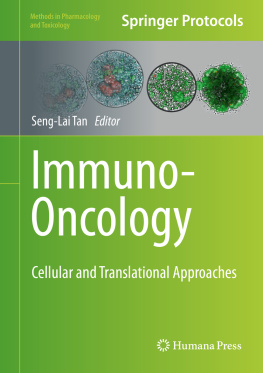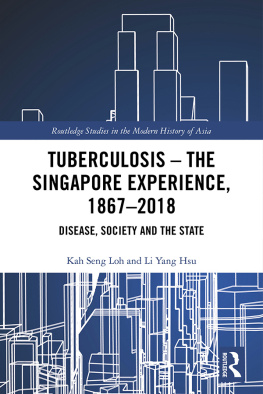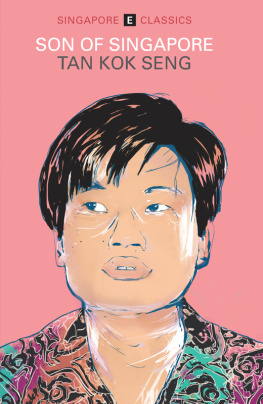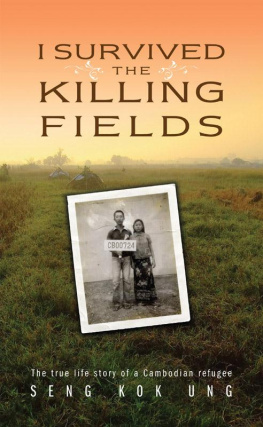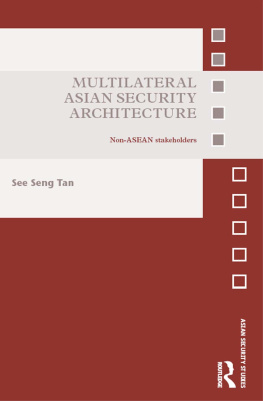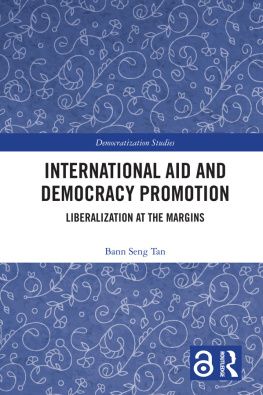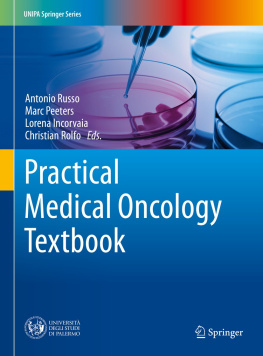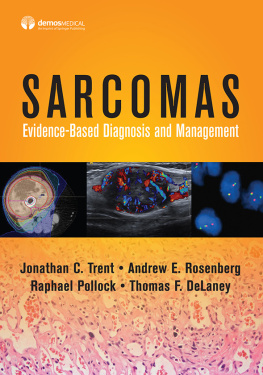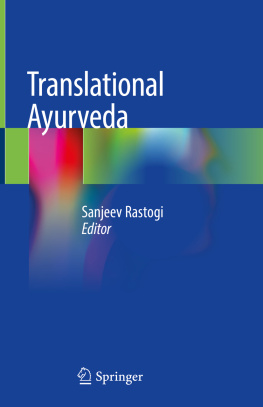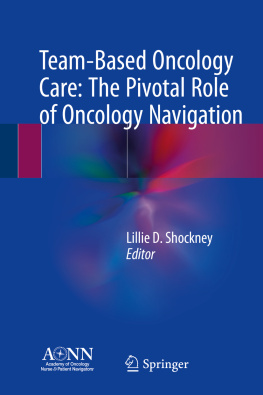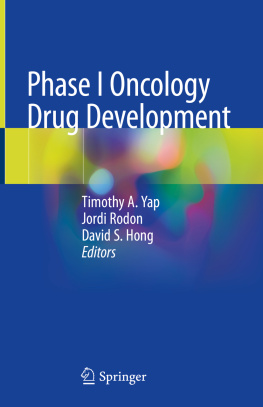Seng-Lai Tan (editor) - Immuno-Oncology Cellular and Translational Approaches
Here you can read online Seng-Lai Tan (editor) - Immuno-Oncology Cellular and Translational Approaches full text of the book (entire story) in english for free. Download pdf and epub, get meaning, cover and reviews about this ebook. year: 2020, publisher: Springer US, genre: Home and family. Description of the work, (preface) as well as reviews are available. Best literature library LitArk.com created for fans of good reading and offers a wide selection of genres:
Romance novel
Science fiction
Adventure
Detective
Science
History
Home and family
Prose
Art
Politics
Computer
Non-fiction
Religion
Business
Children
Humor
Choose a favorite category and find really read worthwhile books. Enjoy immersion in the world of imagination, feel the emotions of the characters or learn something new for yourself, make an fascinating discovery.
- Book:Immuno-Oncology Cellular and Translational Approaches
- Author:
- Publisher:Springer US
- Genre:
- Year:2020
- Rating:4 / 5
- Favourites:Add to favourites
- Your mark:
- 80
- 1
- 2
- 3
- 4
- 5
Immuno-Oncology Cellular and Translational Approaches: summary, description and annotation
We offer to read an annotation, description, summary or preface (depends on what the author of the book "Immuno-Oncology Cellular and Translational Approaches" wrote himself). If you haven't found the necessary information about the book — write in the comments, we will try to find it.
Immuno-Oncology Cellular and Translational Approaches — read online for free the complete book (whole text) full work
Below is the text of the book, divided by pages. System saving the place of the last page read, allows you to conveniently read the book "Immuno-Oncology Cellular and Translational Approaches" online for free, without having to search again every time where you left off. Put a bookmark, and you can go to the page where you finished reading at any time.
Font size:
Interval:
Bookmark:
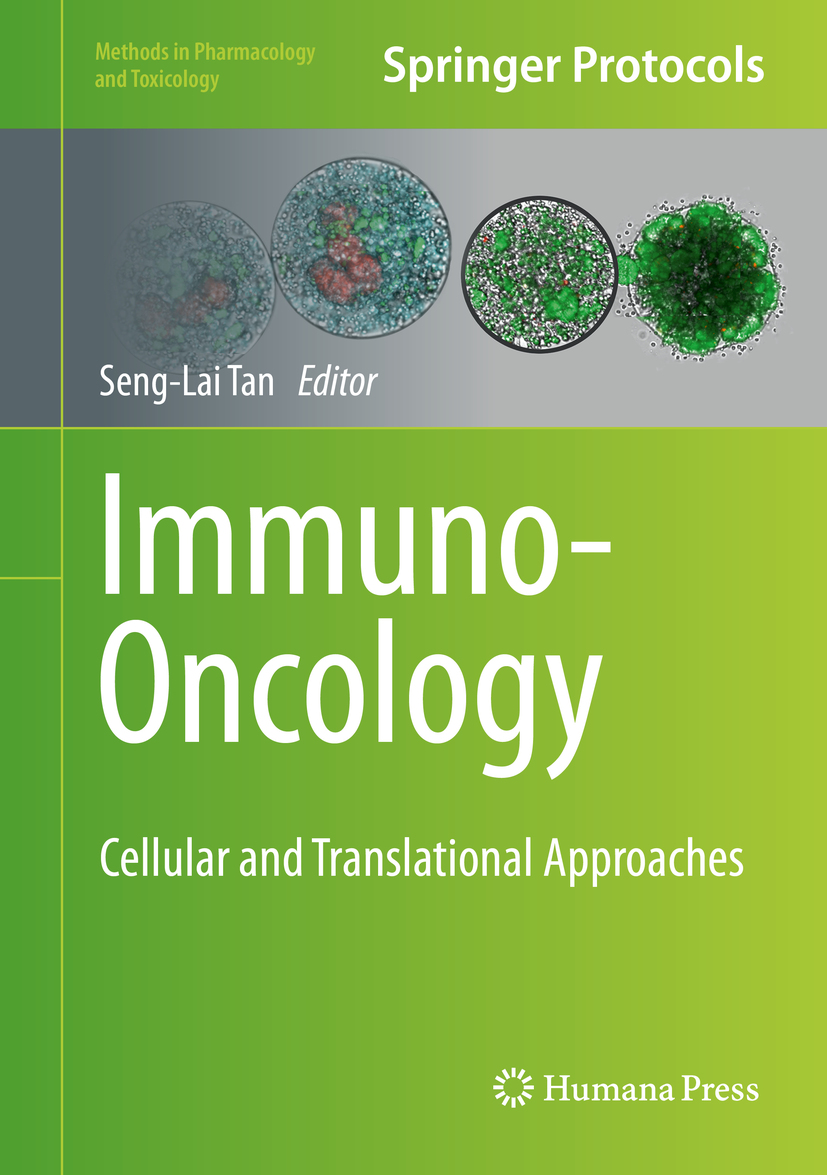
For further volumes: http://www.springer.com/series/7653
Methods in Pharmacology and Toxicologypublishes cutting-edge techniques, including methods, protocols, and other hands-on guidance and context, in all areas of pharmacological and toxicological research. Each book in the series offers time-tested laboratory protocols and expert navigation necessary to aid toxicologists and pharmaceutical scientists in laboratory testing and beyond. With an emphasis on details and practicality,Methods in Pharmacology and Toxicologyfocuses on topics with wide-ranging implications on human health in order to provide investigators with highly useful compendiums of key strategies and approaches to successful research in their respective areas of study and practice.

This Humana imprint is published by the registered company Springer Science+Business Media, LLC, part of Springer Nature.
The registered company address is: 233 Spring Street, New York, NY 10013, U.S.A.
Cancer would be quite common in long-lived organisms if not for the protective effects of immunity
Ehrlich P, Ned Tijdschr Geneeskd 5, 273 (1909)
The first wave of cancer immunotherapeutics, including cytokines, targeted and immune-modulating antibodies, and adoptive cellular immunotherapy, has resulted in long-lasting overall survival and potentially permanent protection against cancer recurrence. Unfortunately, only a small number of cancer patients respond favorably to current immune-based modalities, with some experiencing severe immune-related adverse events. Notwithstanding, the remarkable clinical success of immuno-oncology has sparked a new hope in our fight against cancer, with exponentially growing biotechnology and pharmaceutical efforts to search for the next generation of safer and more effective cancer immunotherapeutics aimed at broadening and prolonging patient response rates.
The main goal of this book is to serve as a general reference guide for identifying and applying cell-based translational assays commonly used as well as for assessing the therapeutic potential of new immuno-oncology therapeutics and advancing their mechanism of action. Given the high rates of clinical failures in oncology and the questionable predictive value of widely used animal models, increasing emphasis is being placed on the utility of in vitro and ex vivo translational assays using primary human cells. One noted paradigm shift away from the strict reliance on traditional cell-based assays and animal models in the biomedical industries is the application of primary cells, including human patient biosamples, that preserve or recapitulate as much as possible the essential human immune-tumor components observed in cancer patients.
It is also hoped that this book will provide readers with a baseline understanding of the pros and cons as well as key considerations for applying these assays that are more reflective of the human immune-tumor microenvironment to increase their translatability into the clinic. It is impossible for any of these assay systems to accurately model the various clinical tumor types and their relevance in terms of the immune contexture observed in cancer patients. Furthermore, patients enrolling in clinical trials usually have established cancers that are refractory to several previous lines of therapies that may result in compromised immunity and/or emergence of other immune escape mechanisms. Thus, as we improve our understanding of drug resistance mechanisms observed in patients, it is also envisioned that this book will serve as a starting point for further improvement and refinement of human translational assays that represent these scenarios for combinatorial drug screens and for developing precision medicines.
Font size:
Interval:
Bookmark:
Similar books «Immuno-Oncology Cellular and Translational Approaches»
Look at similar books to Immuno-Oncology Cellular and Translational Approaches. We have selected literature similar in name and meaning in the hope of providing readers with more options to find new, interesting, not yet read works.
Discussion, reviews of the book Immuno-Oncology Cellular and Translational Approaches and just readers' own opinions. Leave your comments, write what you think about the work, its meaning or the main characters. Specify what exactly you liked and what you didn't like, and why you think so.

